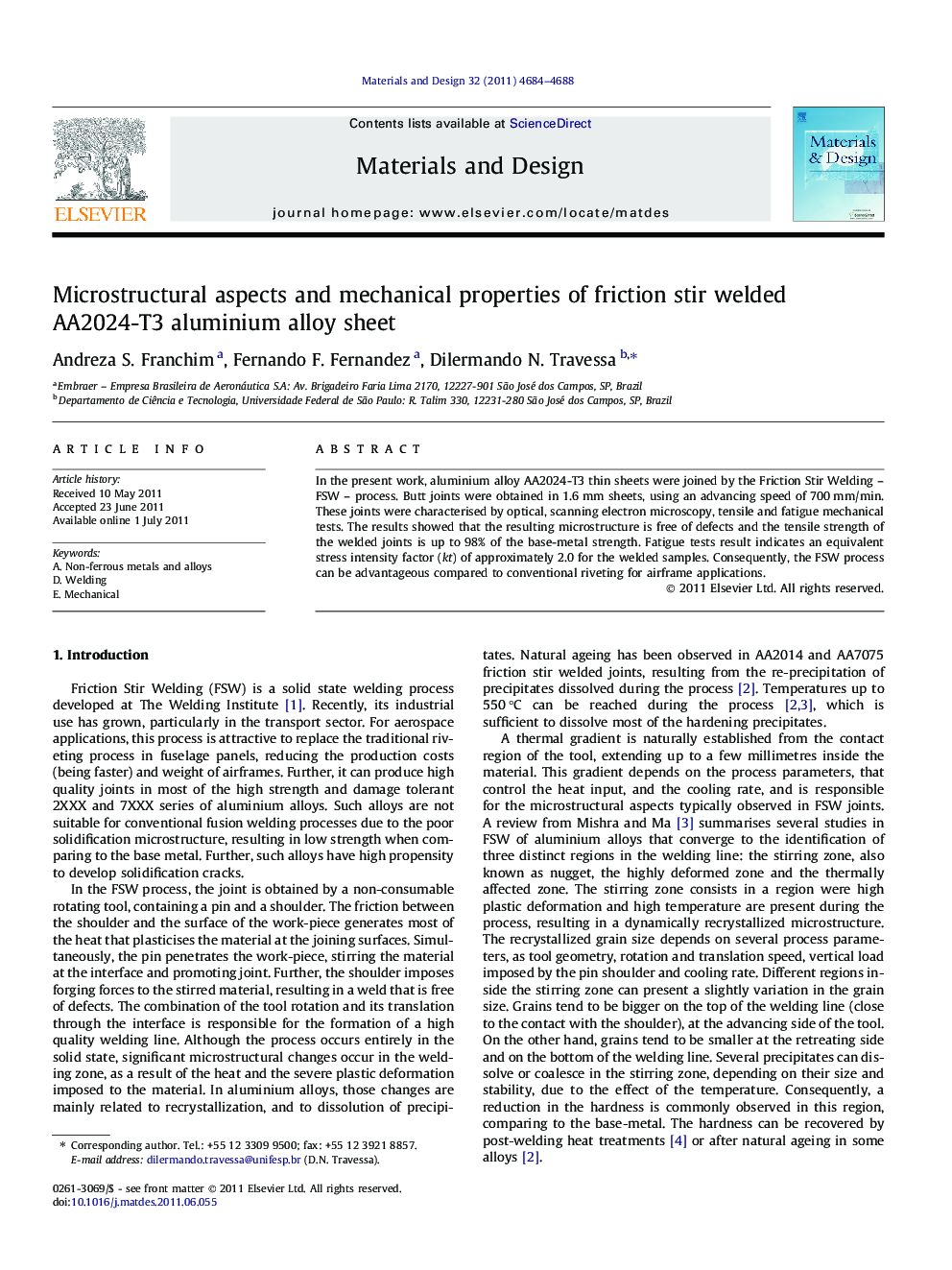| Article ID | Journal | Published Year | Pages | File Type |
|---|---|---|---|---|
| 831189 | Materials & Design (1980-2015) | 2011 | 5 Pages |
In the present work, aluminium alloy AA2024-T3 thin sheets were joined by the Friction Stir Welding – FSW – process. Butt joints were obtained in 1.6 mm sheets, using an advancing speed of 700 mm/min. These joints were characterised by optical, scanning electron microscopy, tensile and fatigue mechanical tests. The results showed that the resulting microstructure is free of defects and the tensile strength of the welded joints is up to 98% of the base-metal strength. Fatigue tests result indicates an equivalent stress intensity factor (kt) of approximately 2.0 for the welded samples. Consequently, the FSW process can be advantageous compared to conventional riveting for airframe applications.
► FSW is an attractive process for joining Al alloys. ► This solid state process results in a joint free of defects. ► Tensile strength values close to the base metal strength can be reached. ► Fatigue performance is better, when comparing to riveted joints.
